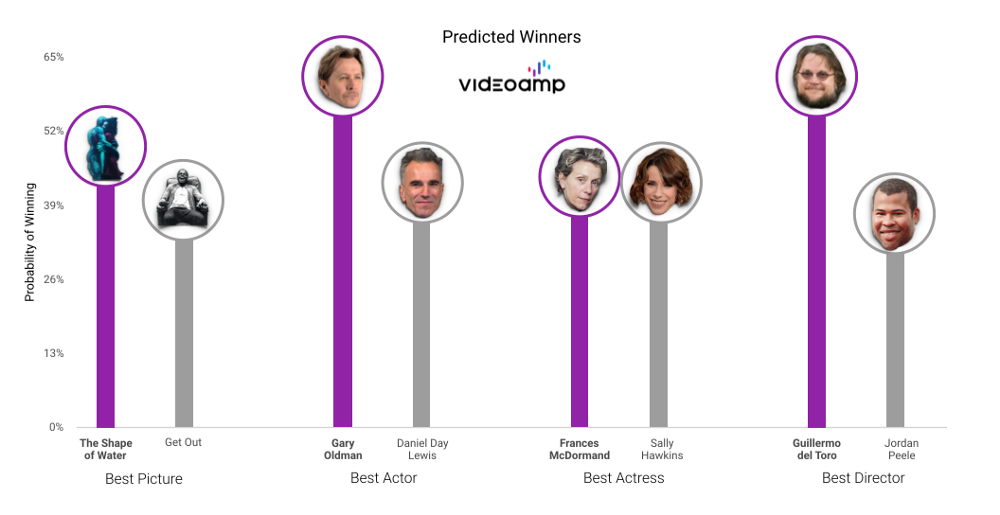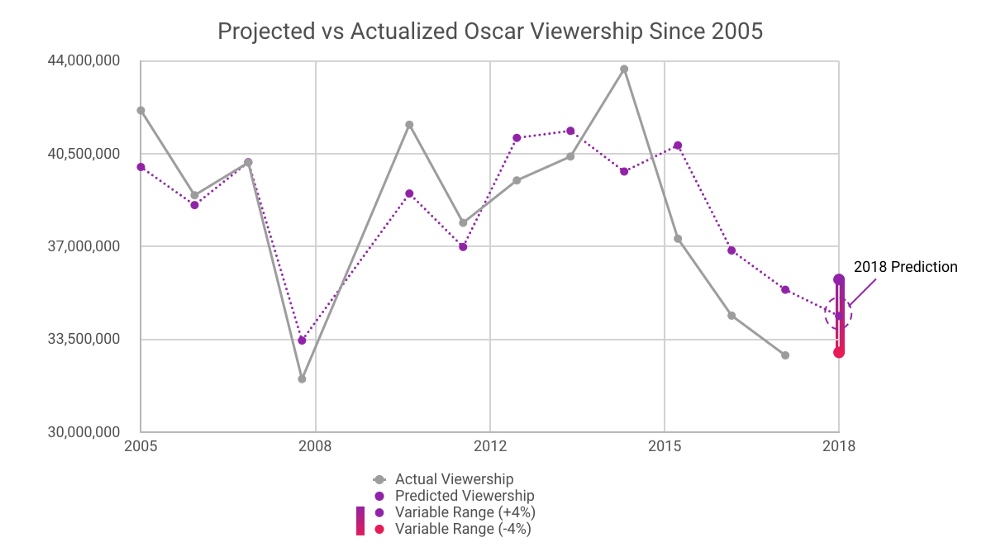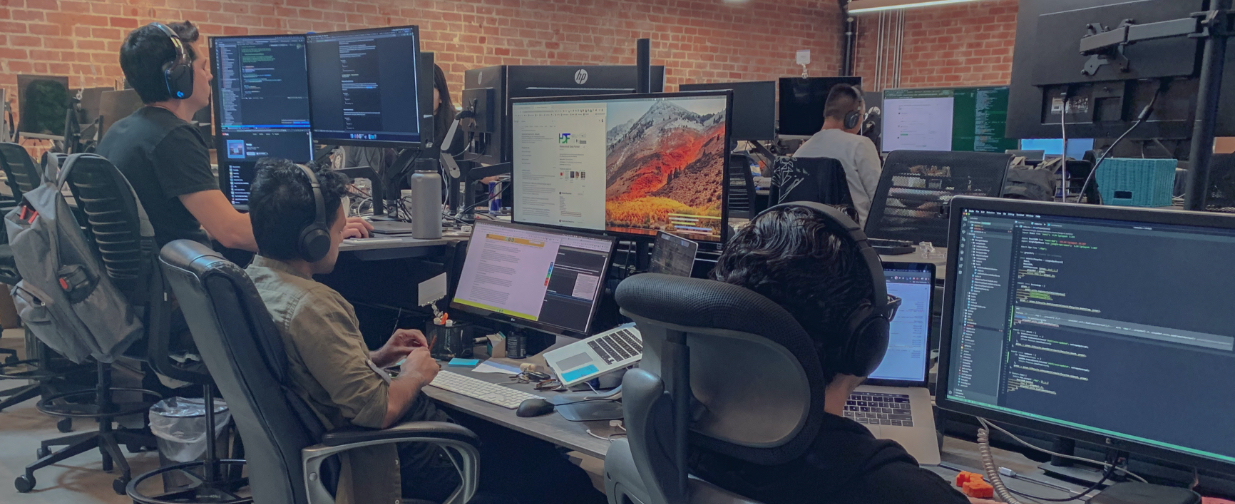VideoAmp Data & Innovative Algorithm Predicts Oscars’ Likely Winners

VideoAmp leverages unique TV viewership data and innovative methodology to forecast Oscars’ winners and project increased ratings.
Winner Probabilities

This year’s most likely winners are a mix of proven awards season favorites, this season’s front-runners, and fan favorites.
- Most likely to win Best Actress:Frances McDormand, followed by Sally Hawkins
- Most likely to win Best Actor:Gary Oldman, followed by Daniel Day Lewis
- Most likely to win Best Picture: The Shape of Water, followed by Get Out
- Most likely to win Best Director: Guillermo Del Toro, followed by Jordan Peele

Get Out is In: Historically the Oscars have not been kind to horror films, and when it comes to race relations, the Academy prefers historical films over contemporary ones. Get Out and Jordan Peele’s dark horse winning potential speaks to the popularity of the film and the shift in our current social climate.
Viewership Should be Up from Last Year
Though the downward ratings trend seems to be continuing overall, we predict that viewership will be slightly up from last year, perhaps even up to 4.5%.
After the #OscarsSoWhite controversy, Moonlight’s stunning best picture win last year, Get Out’s popularity this year, and the #MeToo and Time’s Up movements shining a spotlight on all of Hollywood — it is possible this year’s broadcast will be a turning point for the Academy to embrace a more progressive program.

A Predictive Viewership Model that Works: Since 2005, VideoAmp’s modeling algorithm predicted the Oscars’ actual viewership closely.
The VideoAmp Data Science team has built one of the most versatile viewership forecasting algorithms to help provide certainty and accuracy to predicting events such as the Oscars. The versatility lies in the abundance of data that is utilized, but more importantly, the difference is in understanding what is occurring right now in people’s lives and attempting to compensate for this in algorithms, as this tends to be the variable in which requires the most attention, and can derail even the most sophisticated predictive models.
Methodology
VideoAmp’s predictive algorithms utilize various inputs to prepare their forecasts:
- Historical US viewership data from previous Oscars going back to 2000
- Incorporated details involving film genre types
- Past winners from genre types
- Additional 2017 award show nominations and victories for film
- Individual actor and director past accolades and accomplishments as available in IMDB
For each movie, we extracted a list of awards received/nominated for that year. For each individual actor or actress, we extracted list of awards received or nominated for since 2000. Filter these lists using a manually crafted list of 20 specialized awards and categories
It seems as though there are two main inputs that the probability percentages favor in these scenarios: previous award shows nominations & individual (actor, actress, director) achievements. However, the current cultural climate is tied into the calculations as well, as films such as “Get Out” and “3 Billboards Outside of Ebbing Missouri” had their probability likelihoods increase significantly due to this aspect.
And finally, we created a weighting factor to reflect the influence of the social or cultural nuances that may have an influence on the final outcome.
Research and data analysis conducted by Sofia Apreleva, Lead Data Scientist at VideoAmp. Sofia holds a Ph.D in Physics and Mathematics.
